

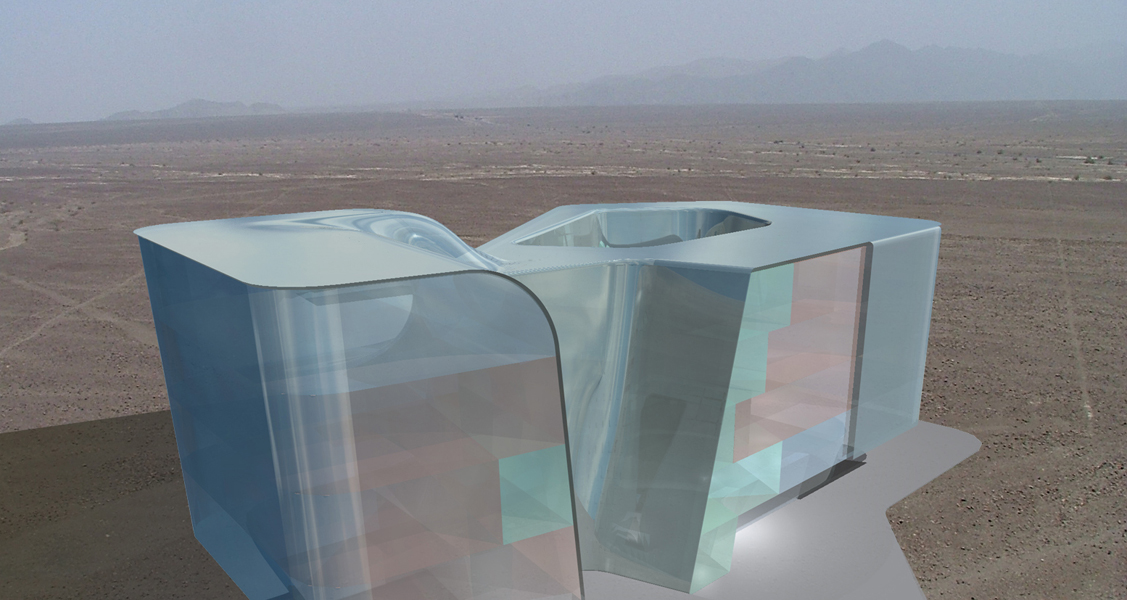
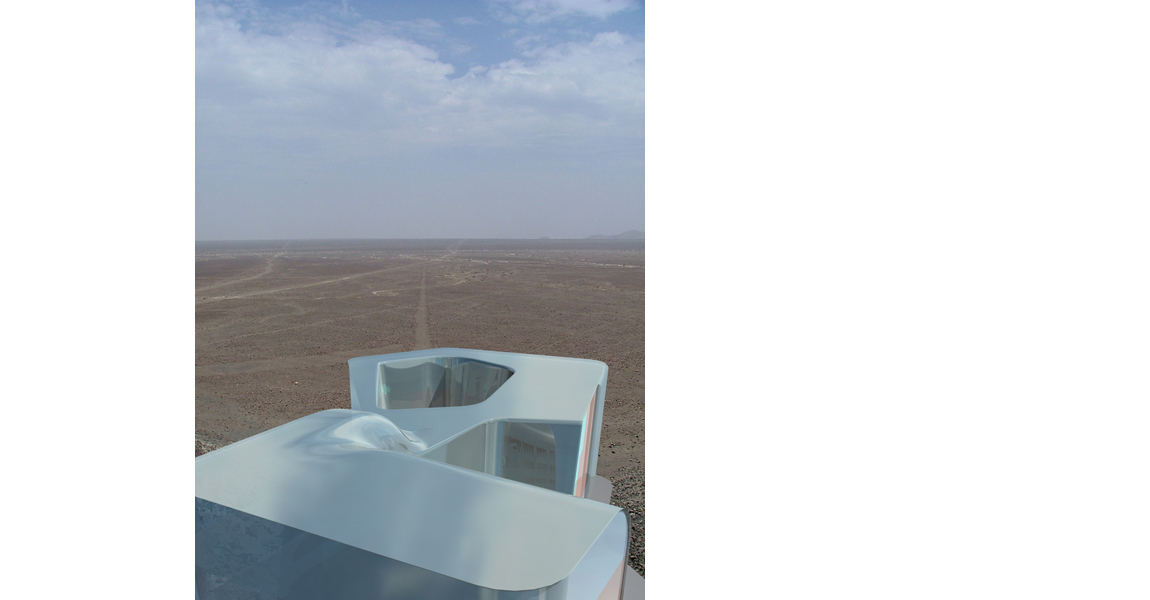
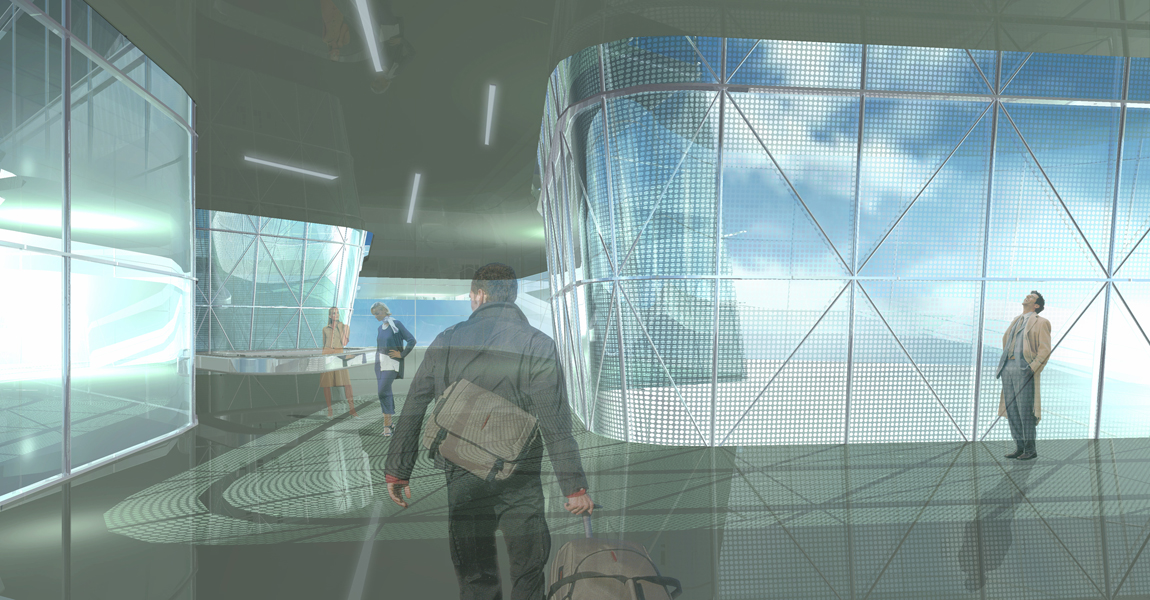
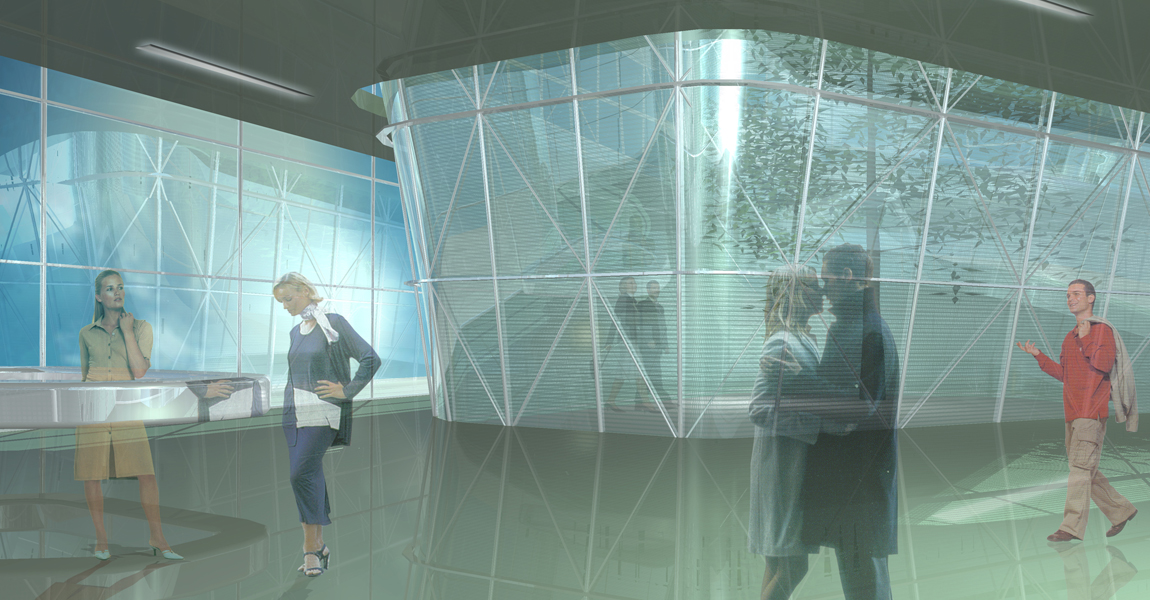
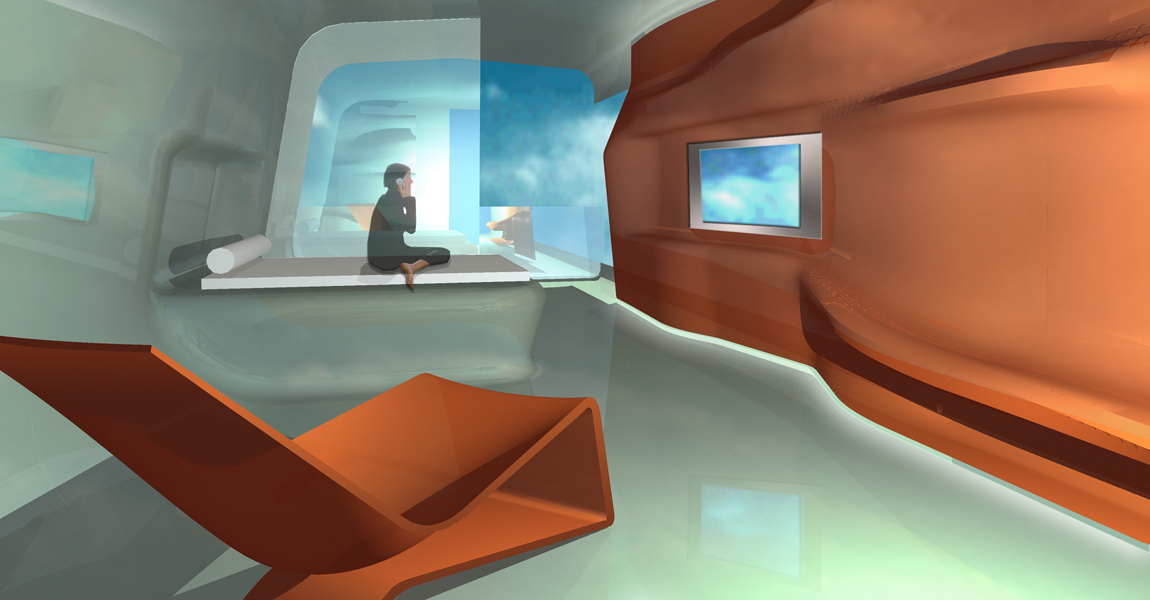









The hotel as an interface for disappearance
Either as an interval during a voyage or as temporary stay, the hotel as a living habitat is marked by a “disappearance” of the tenant from hers/his network of conventional presence.
Invisible hotel – the project
Place as a dominion (the marked region of a specific sphere of interest or range of a certain action), transforms to an enveloping membrane, a skin that folds in a space making movement.
The space that is thus produced is by virtue an in-between space.
A place of temporary, fictional reality, an invisible space.
The skin of the building as the tool of this transformation indicates this “osmosis” function between reality and fiction, permanent and temporal.
Theme Ponds
The building program functions like a chemical catalyst.
A hotel is a specific mixture of public and more private areas. (there is never a really private space in a hotel)
The unique “gravity” of the intensely public areas, (entrance foyer, restaurant,) where place borders to spectacle, “bends” the space making skin controlling the dictating the geometry of the building.
Resident Interface
The room of the hotel is only conventionally the private part of the program.
Temporary “cocoons” of private time are generated as the tenant unfolds his personal belongings within the intermediate space of the hotel room.
The core of the hotel is the repository of these personal items.
The resident interface is a devise – conceptual tool that combines this personal repository (traditionally the closet) with the “portals” for communication (TV, radio, telephone, internet, etc).
A folding of the room’s envelope brings the ultimate public in touch with the intimately private.
The room is the personal-temporal place that attempts, not individuality but to become a destination of a route of transitions.
THE INVISIBLE HOTEL EXHIBITION
2005
RESIDENTIAL + HOTELS
Evangelos Ravanos, Stella Mermiga, Maria Grigoropoulou